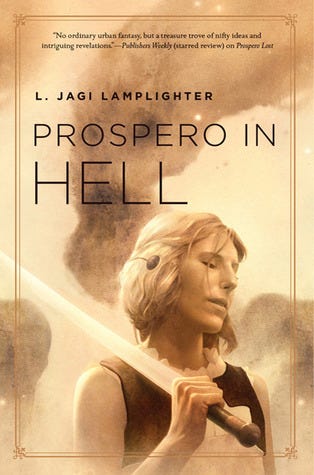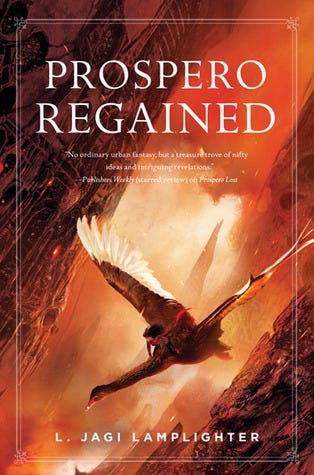To ignore myth and legends when writing of the fantasy genre seems like a crime. Was it not the myths and legends of old that has influenced so many fantasy stories in the first place?
Even the most frankensteined fantasy lore has roots in ancient myths and legends. Vampirism has its long history, as do werewolves, or lycanthropes. Fairy lore is hotly debated in academic halls and in some cases still respected or practiced in certain cultures.
Then there are the myths: Greek and Roman myths, the stories of the Indian Ramayana, the oral tales of Native North and South American tribes, the witches and bears and wolves of Russia, the dragons and demons of China, the fox spirits of Japan and Korea, the Babylonians and their four-winged gods, and on and on and on. Ancient and early modern and modern and post-modern, myths from every culture and time period that had people breathing in them.

Below is a broad definition of myth:
Myth is a legendary or a traditional story that usually concerns an event or a hero, with or without using factual or real explanations. These particularly concern demigods or deities, and describes some rites, practices, and natural phenomenon. Typically, a myth involves historical events and supernatural beings. There are many types of myths, such as classic myths, religious myths, and modern myths.
I do not think many fantasy readers have not come across a fantasy story or two with close ties to one myth or another. Just off the top of my head I can think of several childrens/middle-grade series dealing with myth (Percy Jackson, The Chronicles of Narnia) and there are a few in adult fiction that are also some of my favorite books of all time.
One trilogy is the Prospero’s Daughter trilogy by L. Jagi Lamplighter that starts with Prospero Lost. If the name Prospero sounds familiar to you, you are correct, it is the Prospero from William Shakespeare’s The Tempest. In L. Jagi Lamplighter’s trilogy, Miranda, Prospero’s daughter, is forced to gather her brothers to search for their missing father. There are unicorns, the North Winds personified, the fey, and of course various myths and legends come to life.



This trilogy is a perfect example of an author mixing a classic re-telling or continuation with myth, legends, and urban fantasy.
In fact, urban fantasy does often take on the role of portraying the mythical and legendary in modern or unusual settings quite frequently. In the case of the above, the urban fantasy component is less the genre, and more the setting/tone.
With mythic and legendary fantasy, you can get into a variety of fantasy sub-genre, settings, and plots.
Originated from Latin legendus, legend means “something which ought to be read.” According to J. A. Cuddon, a legend is “a story or narrative that lies somewhere between myth and historical fact and which, as a rule, is about a particular figure or person.” Traditionally, a legend is a narrative that focuses on a historically or geographically specific figure, and describes his exploits. Similar to a myth, a legend can provide an etymological narrative, often filling in historical gaps.
Think of Dracula, the legendary vampire whose origins stem from Vlad Dracul, a historical figure steeped in violence and mystery in what is now known as Transylvania. Or King Arthur — or, as some call him, Arthur Pendragon — the once and future king who fought against witches, his own men, and in some legends, the Romans.
Guinnevere, sometimes his Queen, sometimes his foe, often maligned, has her own history in legends, as does his half-sister (sometimes) Morgan le Fey.
Beowulf is one such legend who has invoked many versions over the centuries, but Grendel’s Mother, often unnamed, has her own history as a legend.
Fantasy (and science-fiction) takes these legends and breathes new life into them, each author offering their own version or presenting a new twist that can delight or enrage a reader.

What’s interesting about this sub-genre of fantasy is that it can intertwine with other fantasy genres. It is often not its own sub-genre. Mythic or legendary fantasy can be urban fantasy, high fantasy, epic or dark, among many others. Mythic figures can appear in gaslamp fantasy as easily as in portal fantasy.
Kendra’s Definitions
I don’t think it’s problematic that this sub-genre that is not a sub-genre doesn’t have a proper name - as such. But I do think that certain words can help a reader search for these particular plots more easily.
Mythic Fantasy: I like this term for fantasy of all sub-genres that has main characters/plot points directly related to any myth.
Legends, urban myths, etc.: the vampire, the werewolf, the cryptid, and other creatures and monsters and fairies and those like Dracula and King Arthur. There are so many variations within the sub-genres it’s hard to pinpoint a term that would encompass all the books that feature these types of legends. Legendary Fantasy sounds cool but seems vague. In my opinion it makes more sense for this category to be named by the main genre, i.e. urban fantasy, dark fantasy, etc. and for the reader to search for these books by legend, i.e. vampires or King Arthur
What are some of your favorite myths and legends? Do you have a favorite mythic fantasy or legend-inspired fantasy? Let me know in the comments!


